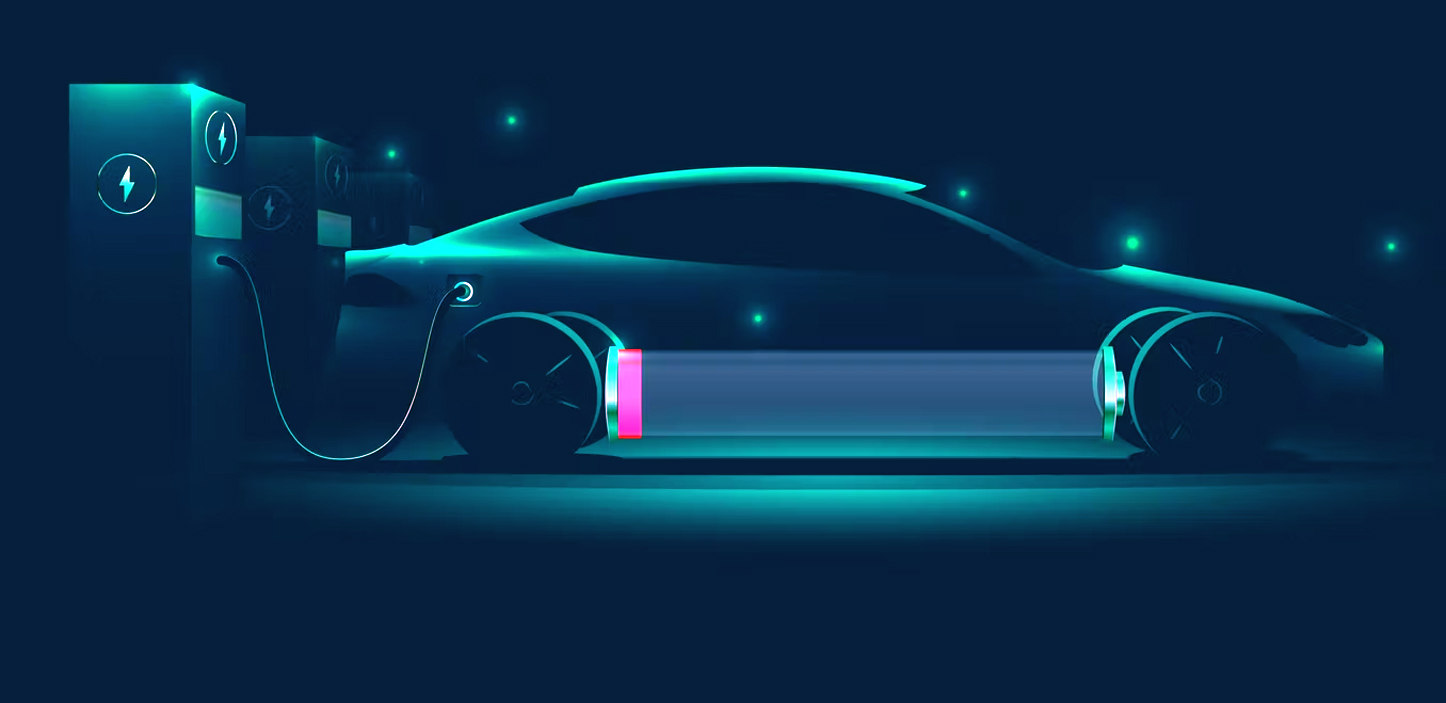Electric Vehicle Market in India – A know how
Growth in Electric Vehicle
Sales in India
Electric Vehicle sales in India is likely to jump almost three times from 340,000 units in FY21-22 to close to 800,000-900,000 units in FY’2022-23. As per industry estimates, sales of electric two wheelers, three wheelers, buses, cars and other vehicles almost doubled twice over in the January-May period from 78,903 units in 2021 to 3,17,890 units in 2022 despite the fire incidents.


FAME II, Supporting Government’s Vision for Electric Vehicles
Apart from the demand incentives, key initiatives taken up by the Government of India for promotion of electric vehicles in the country under Faster Adoption and Manufacturing of (Hybrid &) Electric Vehicles in India (FAME) II are –
(i) GST on electric vehicles has been reduced from 12% to 5%; GST on chargers/ charging stations for electric vehicles has been reduced from 18% to 5%
(ii) Ministry of Power has allowed sale of electricity as ‘service’ for charging of electric vehicles. This would provide a huge incentive to attract investments into charging infrastructure
(iii) The Government, vide S.O. 5333(E) dated 18th October 2018, has also granted exemption to the Battery-Operated Transport Vehicles and Transport Vehicles running on Ethanol and Methanol fuels from the requirements of permit
(iv) In the budget of 2019-20, the Hon’ble Finance Minister announced provision of additional income tax deduction of Rs 1.5 lakh on the interest paid on loans taken to purchase electric vehicles
(v) In order to promote electric vehicles, the Government has notified for retro-fitment of hybrid electric system or electric kit to vehicles and has specified the type approval procedure of electric hybrid vehicles
(vi) The Ministry of Road Transport & Highways has notified certain specifications for the grant of license to age group of 16-18 years to drive gearless E scooters/ Bikes upto 4.0 KW
(vii) Ministry of Housing and Urban Affairs has made amendment in the Urban and Regional Development Plans Formulation and Implementation (URDPFI) guidelines to provide for electric vehicle charging stations in private and commercial buildings

Electric Vehicles Operational in India as of May’2022
India is perceived as a prospering market for electric vehicles given the push from the Government and rate at which adaptation is anticipated. However, the road won’t be that seamless and shall have its own set of challenges for the passenger segment vehicles for the competition it faces in terms of cost from CNG based vehicles and other clean fuels for years to come. But the scenario in 2W & 3W category may be diametrically opposite with adoption to electric mode may be faster than anticipated or to say the least at the rate predicted. It is pertinent to note that as of Apr’2022 the total operational EVs in India were recorded to be over one million. Of the total EV count, nearly 64% were electric 3W, while 32% were electric 2W. Further, its worth mentioning that over the past one electric 2W segment has witnessed a magnanimous growth of 938% in the sales from June 2021-22. The sales of electric 2W during this period increased from 4073 units in June 2021 to 42260 units in June 2022.

Electric Vehicles Operational in India as of April’2022
Electric Vehicles Manufacturing Market Scenario in India
Electric Vehicle (EV) market in India is dominated by close to 400 players covering both organised & unorganised market participants. With the increasing adoption of electric vehicles in the landscape, this number is only expected to increase further. EV manufacturing market is largely dominated by three-wheeler segment followed by two-wheeler. Across the e-2 wheeler segment in India, Hero Electric is the market leader followed by Ather Energy, Okinawa and Ola Electric. It is pertinent to note that as of April 2022, nearly 59 new EV manufacturing units were established in the country under FAME II. Of this, the count of EV three-wheeler manufacturing units stood at 31.
Phase II of FAME scheme was notified on 8th March 2019 for a period of three years commencing from 1st April 2019-22 , with a total budgetary support of INR. 10,000 crore. This phase mainly focusses on supporting electrification of public & shared transportation and aims to support, through demand incentive, 7090 e-buses, 5 lakh e-3 wheelers, 55000 e-4 wheeler passenger cars and 10 lakh e-2 wheelers. In addition, creation of charging infrastructure is also supported to address range anxiety among users of electric vehicles. Under Phase-II of FAME India Scheme, 56,900 Electric Vehicles have been supported, as of March 2022, by way of Demand Incentive amounting to about INR. 170 Cr. Further, 6265 electrical buses have been sanctioned to various State/ City Transport Undertakings under Phase-II of the Scheme. This involves Government incentive of around INR. 3000 Cr
Further, it is pertinent to note that, of the total manufacturing units established under FAME II, nearly 61% penetrated across northern region states, Haryana being the most preferred site. Courtesy, the EV policy of Haryana that encourages new manufacturing in EV technology and give thrust to existing automobile manufacturers to diversify in EV manufacturing domain. The policy offers various financial incentives to EV manufacturers by giving incentives on Fixed Capital Investment (FCI), Net SGST, Stamp Duty, Employment Generation, etc. There is 100% reimbursement of stamp duty along with exemption in electricity duty for a period of 20 years. The SGST reimbursement shall be 50% of the applicable Net SGST for a period of 10 years.
Looking these incentives at the concurrent level , many players are entering into India’s manufacturing space. For instance, Taiwanese major Hon Hai Technology Group (aka Foxconn) is likely to set up an EV manufacturing unit in India through its subsidiary Foxtron. EV startup firm Mecwin India is to set up to invest INR 50 crores for establishing manufacturing plant in Bangalore for EV motors and controllers. The plant that will get commissioned by Dec 2022 or early Jan 2023 will have initial capacity of 2000 units per day.












